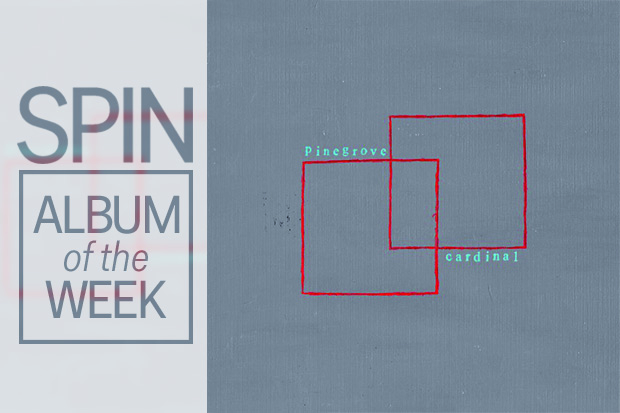Release Date: February 12, 2016
Label: Run for Cover
In the mid-2000s, Pinegrove’s openhearted indie rock could have been huge. Over the course of the Montclair, New Jersey quintet’s five years of existence, frontman Evan Stephens Hall has developed a great many qualities that would have endeared him to alt-minded fans of a different era. A string of EPs and one-offs, compiled in last year’s appropriately titled Everything So Far, demonstrate the 26-year-old songwriter’s tremendous breadth. He writes in long, verbose, image-rich streams of thought that feel like Hold Steady lyrics, mirrors volcanic emotions like the best Arcade Fire songs, pulls economy out of instrumental excess like Broken Social Scene, and even demonstrates a knack for occasional tasteful banjo parts like a nascent Sufjan Stevens. He’s described his band as the “midpoint between math rock and Americana,” or what might result if Phil Elverum, the existentially minded songwriter behind the Microphones and Mount Eerie, started a funk band.
His choice of comparison is probably a bit facetious, but its point is still clear: Hall is making music that is deliberately out of time and feels profoundly, unapologetically uncool. You shouldn’t want it any other way. His band’s debut full-length, Cardinal, only doubles down on these off-key predilections, in ways that are more emotionally direct and endearing than they’ve ever been before. Hall has a preternatural knack for piecing together wry observations and punctuating them with big, bare, gut-punch observations. Lean too far in one direction of those lyrical impulses and you seem cynical, lean too far to the other and you start to understand why emo was so maligned during its first go-around. Hall strikes a steady balance on “Old Friends,” meditating on relational loss and avoiding people in Port Authority (“a sort of f**ked up place,”), before coming to the song’s massive, guitars-roiling realization: “I should call my parents when I think of them / I should tell my friends when I love them.” It’s simple and straightforward, but it puts a heartbreaking ribbon on the more abstract yearning that preceded it.
When people talk about the emo revival, they’re not really talking about a specific region or sound, but rather the return of indie-rock songwriters with this kind of emotional sensitivity, who are able to sublimate these intimately specific (or as Hall sings at one point, “solipsistic”) ideas into pithy phrases that feel universal but not pandering. It’s nearly impossible to do in a way that doesn’t feel disgustingly saccharine. Somehow Hall does. That’s due in part to his utter disregard for presenting these thoughts in a package that relies in any way on indie rock’s current signifiers of cool. There’s no disaffection, abstract noise bursts, or commentaries on social media and the Internet age. Cardinal’s eight simple guitar-pop songs all run between two-and-a-half minutes and double that, occasionally augmented by a gang of backing vocals or muted banjo lines. There’s one tune, “Aphasia,” that transmutes its tale of slowly regaining your voice and confidence into a meta-song/coda that begins, “To help remind myself, I wrote this little song,” before a beat change and a new chord progression: “One day I won’t need your love.” It’s not special on paper, but recorded it feels revelatory.
That’s the magic of the music that still gets lumped under the emo banner. Along with the World Is a Beautiful Place and I am No Longer Afraid to Die and Into It. Over It. — both of which Pinegrove sound nothing like, but are nevertheless about to head out on tour with — Hall has found a way to bypass logic and set up residence right in your limbic system. It feels bold, somehow, to make a record like this, one with no affectation or ulterior motive, and a guitar at its bleeding heart. In another place and time, Pinegrove could have ridden a self-assured record like this to widespread indie acclaim. Instead, it feels like an act of generosity, a record lovingly crafted and intimately written, full of sounds, observations, and emotional realizations that you didn’t know you wanted in 2016, but, in fact, needed desperately.





